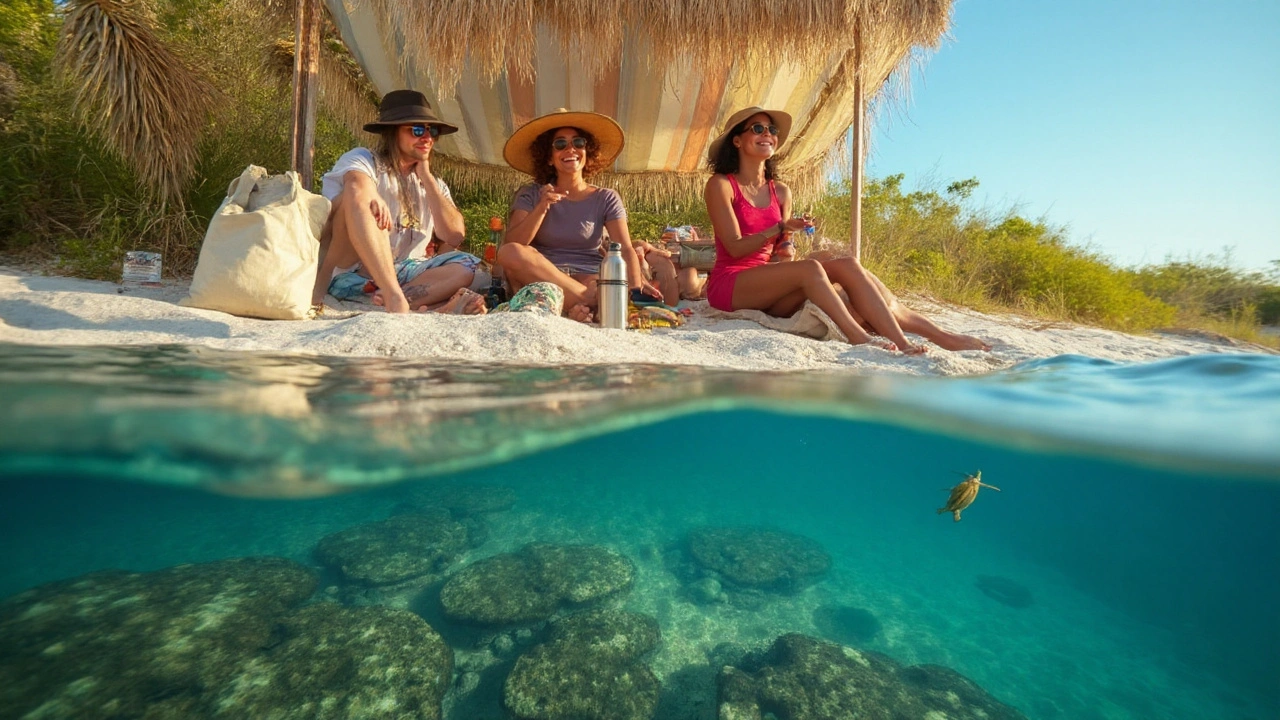Sustainable Sun Protection: What It Is and Why It Matters
If you love the beach but hate hearing about coral bleaching, you’re not alone. Traditional sunscreens often contain chemicals that damage marine life and linger in the environment. Switching to sustainable sun protection lets you stay safe from UV rays while keeping oceans and ecosystems healthier.
Why Choose Sustainable Sunscreen?
Regular sunscreen can include oxybenzone, octinoxate, and other UV filters that leach into water and harm coral. Studies show these compounds cause bleaching and disrupt fish reproduction. By picking reef‑safe formulas, you cut that risk and support a cleaner shoreline for everyone.
Beyond the water, sustainable sunscreens usually avoid microplastics and use biodegradable ingredients. That means less plastic waste ending up in landfills or oceans. Many brands also opt for recycled or recyclable packaging, further shrinking your environmental footprint.
How to Pick Eco‑Friendly Sunscreen
Start by reading the label. Look for terms like "mineral," "zinc oxide," or "titanium dioxide" without added nanomaterials. These mineral filters sit on the skin’s surface and reflect UV light without soaking into water.
Avoid sunscreens that list oxybenzone, octinoxate, avobenzone, or homosalate. If the product proudly says "reef safe" or "marine‑friendly," double‑check the ingredient list to be sure. Some reputable certifications, such as the USP or ECOCERT, can also signal greener choices.
Packaging matters, too. Choose sunscreens in glass bottles, aluminum tubes, or recyclable plastics. Some brands even offer refill stations, letting you reuse the container and cut down on waste.
Applying sunscreen correctly maximizes protection, sustainable or not. Use enough—about a shot glass for your body—and reapply every two hours, especially after swimming or sweating. This ensures you stay safe while keeping the product from washing off into the water.
Store your sunscreen in a cool, dry place away from direct sunlight. Heat can break down active ingredients, reducing effectiveness and potentially increasing harmful by‑products. When the product expires, don’t toss the tube in the trash; check local guidelines for proper disposal or recycling.
If you’re into DIY, you can mix zinc oxide powder with a carrier oil like coconut or jojoba oil. This simple recipe gives you a custom, reef‑safe sunscreen, though you’ll need to test the SPF yourself or rely on a trusted calculator.
Switching to sustainable sun protection is a small habit change with big impact. Your skin stays safe, marine life thrives, and you contribute to a greener planet—win all around.
Sunburn doesn’t just hurt skin-it harms reefs, air, and water. Learn science-backed ways to prevent burns while cutting waste, chemicals, and pollution.
Sep, 4 2025

